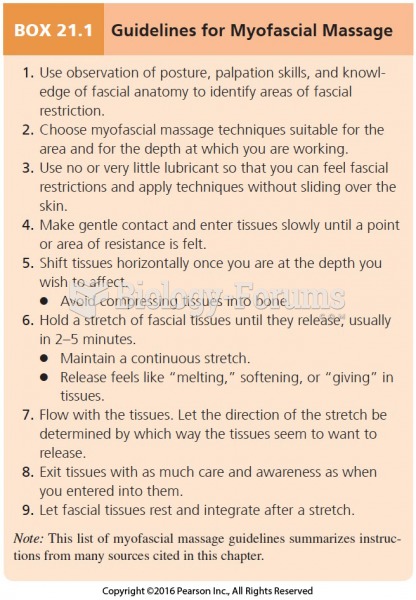Answer to Question 1
To prevent pathogens in fecal materials from contaminating your food, you should always wash your hands after using the bathroom, changing a diaper, or handling a pet. To do so effectively, wash your hands vigorously with soap for at least 20 seconds and rinse them thoroughly under clean, warm running water.Dry your hands using clean paper or cloth towels. Using an antimicrobial gel can also help ensure that your hands are pathogen free, although gel sanitizers are not a substitute for proper hand washing. A clean cooking environment is also important; you should periodically sanitize counters, equipment, utensils, and cutting boards with a solution of one tablespoon of liquid chlorine bleach in one gallon of water.Washing fresh fruits and vegetables can also provide an important protection from foodborne pathogens and noninfectious agents (such as pesticides). Wash produce under clean, cool running water, and if possible, scrub with a clean brush. Fruits and vegetables should be dried with a clean paper or cloth towel. There is some evidence that commercial fruit and vegetable cleaners may help removeE. coliO157:H7 andSalmonellafrom produce, but the USDA has not taken a stance on the effectiveness of such products. Note that while you should wash produce, you should not wash raw meat, poultry, or fish, as doing so increases the likelihood of cross-contaminating otherwise noninfected foods and surfaces.
Answer to Question 2
If you experience traveler's diarrhea while abroad, it is important that you replace lost fluids and electrolytes as soon as symptoms begin to develop. Clear liquids are routinely recommended for adults, and those who develop three or more loose stools in an eight-hour period may benefit from antibiotic therapy.When traveling outside of the United States or camping in remote regions of the country, it is advisable to drink bottled water and avoid using ice. Before you drink water from a bottle, be sure that it has a fully sealed cap. If the seal is not intact, the container may have been refilled from an unknown source. If bottled water is not available, all water should be boiled for one minute before use. If at a high altitude (more than 2,000 meters above sea level), boil water for three minutes. If boiled or bottled water is not available, fresh water can be chemically treated to kill pathogens that may be present. Portable water filters can also be used to remove some pathogens.Although fresh produce that is contaminated with bacteria may not cause illness for local residents, it can cause serious illness for visitors. Thus, when traveling to a foreign country, avoid or carefully wash fresh fruit and vegetables that are eaten without peeling (such as grapes and peppers).The Centers for Disease Control and Prevention recommends that when traveling in Europe or another area that has reported cases of bovine spongiform encephalitis (BSE) in cows, concerned travelers should consider either avoiding beef and beef products or selecting only beef products composed of solid pieces of muscle meat. These considerations, however, should be balanced with the knowledge that the risk of disease transmission is very low. Milk and milk products are not believed to pose any risk for transmission of BSE to consumers-even in areas of the world with emerging incidence of variant Creutzfeldt-Jakob disease.







